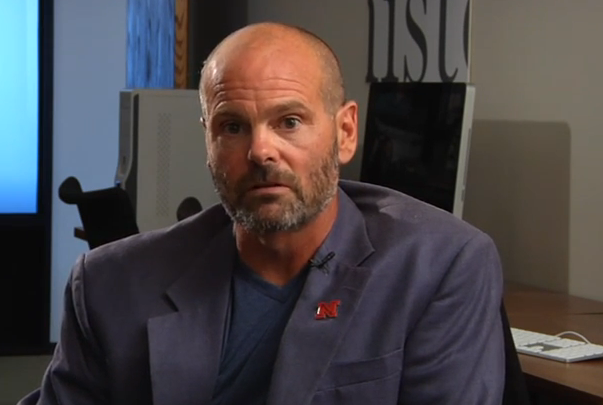
A recent rise in anti-Muslim rhetoric and the national debate on if Syrian refugees should be admitted to the United States have moved University of Nebraska-Lincoln professor James LeSueur to action.
LeSueur, a UNL professor of history who is an expert in radical Islam and terrorism, will deliver a talk, “Clashing with the ‘Clash of Civilizations’ Thesis: A Documentarian’s View of the Debate over ‘Radical Islam’ and the War on Terror,” at noon Dec. 8 in the Dudley-Bailey Library, Andrews Hall, Room 228. The event is free and open to the public.
LeSueur has interviewed many Muslim writers and artists who live in exile because of threats on their lives from radical Islamists. He will use this background to demonstrate, he said, “how long before the rise of al-Qaeda and ISIS, writers and artists from Muslim-majority states have relied on art and literature to take on radical Islamists within the realm of ideas and demonstrate the vitality of civil society.”
LeSueur said he was compelled to enter the public discussion after the recent increase in anti-Muslim rhetoric used by state and national leaders in reaction to the ISIS attacks in Paris.
“I wanted to do an intervention on campus because I have material that I thought could help students and faculty better understand the scope of the terrorist threat,” LeSueur said. “I wanted to show how Muslims have addressed the issue of violence long before the Oct. 11 attacks in Paris.
“We cannot get out of this impasse without understanding just what was at stake for citizens of Muslim-majority states,” he said. “In particular, I will talk about the writers who confronted radical Islamists with the novel.”
The audience also will hear from artists and intellectuals who have used the pen to protest Islamic and state violence in Muslim-majority states. LeSueur said these intellectuals were on the front lines of the war on terror a decade before Sept. 11, 2001.
The talk is based on LeSueur’s documentary film and digital history project, “Exile and Fatwa: The Life and Death of Artists after Rushdie.”
LeSueur’s talk is the second campus event this month to explore radical Islam and its effects. The panel discussion “Syria and ISIS: The Human Cost,” met 5 p.m. Dec. 1 in the Nebraska Union auditorium. The panel focused on the recent ISIS-related attacks in Paris, Beirut and Mali, the downing of Russian Metrojet Flight 9268 and the resulting backlash of concern about resettling Syrian refugees in the United States.







